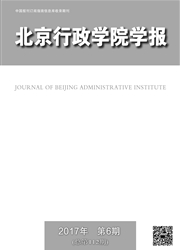

 中文摘要:
中文摘要:
以1988年至1993年第七届中央政府时期的能源部改革为案例,运用分析性叙述的方法,深入描述这次改革的背景、方案、运行、结果及影响。在分析能源部改革历史逻辑、总结改革失败教训的基础上,提出三个有关行政体制改革的观点:(1)大部制并不能针对性地解决部门协调的问题,仅仅提供了协调的机会和可能性;(2)以简政放权为目的的大部制改革难以实现部门协调的目标;(3)在对行政改革进行评价时,必须重视改革文化的培育与维护。
 英文摘要:
英文摘要:
Taking the reform of energy ministry from 1988 to 1993 as a case and using the method of analytical narrative, this paper describes its background, sn'ategy, operation, results and impact and analyzes its historical context and draws some lessons, further sets forth three propositions concerning reform of administrative system: first of all, the super-ministry system only provides a chance of cross-sector coordination instead of addressing problems themselves; secondly, the reform of super-ministry system targeted on streamlining administration and delegating power can hardly achieve the object of cross-sector coordination; thirdly, it is very important to nurture and maintain reform culture while evaluating the performance of administrative reform.
 同期刊论文项目
同期刊论文项目
 同项目期刊论文
同项目期刊论文
 ADJUSTING FOR PERCEPTION BIAS IN CITIZENS' SUBJECTIVE EVALUATIONS: A Production Function Perspective
ADJUSTING FOR PERCEPTION BIAS IN CITIZENS' SUBJECTIVE EVALUATIONS: A Production Function Perspective 期刊信息
期刊信息
